
On December 1, World AIDS Day reminds us that the epidemic still rages on in our community—and through the entire world for that matter. While treatments continue to evolve and improve—and another experimental HIV vaccine is currently in national trials—it may be decades until we defeat the virus.
Luckily there are those who have stood at the front lines in the war against HIV/AIDS, from doctors and scientists to lobbyists, activists and caregivers. Their names are legion, and we will spotlight many more in the future, but here, we introduce you to just a few. All are under 30—and thus all were literally born into the era of AIDS. They come from different backgrounds and have different roles, but are all working to educate, heal, comfort, and protect our community.
Know someone else whose work with HIV/AIDS should be highlighted? Let us know in the comments!

Jaszi Johnathan Alejandro, 25
Community Health Specialist
New York, NY
Born and raised in the Bronx, actor/educator /activist Jaszi Jonathan Alejandro is currently working at New York’s Gay Men’s Health Crisis (GMHC), where he focuses on working with at-risk teens. At the center’s new drop-in youth center, Club1319, he facilitates HIV and STD discussions, but also art classes, theater workshops, vogueing, and as he puts it, “anything that can make learning fun and useful.”
“We deal with obstacles like peer pressure, substance use, violence, acceptance, loneliness, poverty, [poor] health and [low] self-esteem,” he notes. “All these can lead to risky behaviors or decisions, some of the factors contributing to why so many LGBT youth are getting infected with HIV.”
Alejandro has firsthand experience: Diagnosed as HIV+ in 2005, he’s made it a life mission to do anything he can to prevent new infections, to make HIV (and STD) testing a routine part of people’s lives and to eradicate the stigma and discrimination still surrounding HIV+ people.
Alejandro received the 2011 Brendan Upson Award from Brooklyn’s Teatro El Puente for outstanding leadership and dedication to bringing HIV awareness to the Latino community and is spokesperson for several popular social-marketing campaigns including “HIV Stops with Me” (above) and the GLAAD Award-winning “I Love My Boo” campaign, which targets healthy relationships amongst MSM of color.
“There is no cure for this virus,” he says. “[Right now] the only cure is education.”

Greg Zhovreboff, 28
Community Organizer
San Francisco, CA
Working at Magnet, a gay men’s health center in San Francisco’s Castro district, Greg Zhovreboff first became involved with sexual health education in high school—as a peer educator and condom distributor.
“I grew up in San Francisco and saw firsthand the toll HIV was taking on the gay community,” he shares. “I grew up in a city with no gay men in their 30s because they were all dying or dead. I was still coming into my own identity as a young queer person [at the time], but I knew somehow that this was what I wanted–perhaps even needed–to do.”
His career path determined, Zhovreboff went on to work for Santa Clara County’s health department as an assistant for the Ryan White Planning Council at age 20. Four years later, he ascended to director of the support team and by age 26, he assumed the same position in San Francisco. Today at Magnet, he provides counseling and routinely administers rapid HIV antibody tests.
“At Magnet, we view sexual health in a comprehensive model–mind, body, spirit,” he says. “I think the most important message for [younger generations] is that we need to continue to take care of our ourselves and each other. The beginning of the epidemic brought the community together in an almost unprecedented way and I think we’ve lost that a bit as we’ve moved from HIV being terminal to a manageable, chronic condition. If we don’t take care of ourselves and each other, it can be hard to have the social capital to make the best decisions for ourselves.”

Julian Dormitzer, 23
Clinical Research Nurse
Boston, MA
Born and raised in Traverse City, MI, Julian Dormitzer started working at Boston’s Fenway Institute in October.
“I’m thrilled to be the third member of a growing team working on research for the Adolescent Trials Network,” she elaborates. “We are currently conducting research to better understand HIV-infected and at-risk adolescents and young adults.”
Dormitzer feels that the stigma surrounding the epidemic and its most affected populations—such as African-American men, which makes up a disproportionate percentage of new HIV infections—is the biggest challenge at present, and that knowing your status is the first and most important step you can take to help fight the disease.
“The message that is most important is for youth to understand the importance of testing and talking openly about the prevalence of HIV and HIV risk reduction,” she explains. “If we can increase access to healthcare, in addition to increasing healthcare provider’s knowledge of issues relating specifically to the health concerns of the LGBT community, I think we will see significant improvement in both treatment and prevention of HIV and AIDS.”
How about we take this to the next level?
Our newsletter is like a refreshing cocktail (or mocktail) of LGBTQ+ entertainment and pop culture, served up with a side of eye-candy.

Michael Parish, 24
Outreach Coordinator
Dallas, TX
Waco, TX, native Michael Parish is a relative newcomer to the arena of HIV/AIDS prevention. After serving as a volunteer for four years, he was hired by Resource Center of Dallas in 2010, where he provides weekend STD testing and strives to prevent new HIV infections and combat the stigma attached to the virus and those who have it. (He also works with other programs that serve the community, such as the gay/bi young men’s group Fuse).
“Some communities don’t fully accept that they’re at risk of infection,” says Parish, an artist and singer/songwriter in his free time. “LGBT people, on the other hand, ‘throw in the towel’ when it comes to fighting HIV. They’ve been made to believe that they specifically are ‘destined’ to contract HIV. But if you remove ‘LGBT’ and insert another category of people and say the same thing, you would see the sheer ludicrousness of such a belief. [Fighting that sense of inevitability] is the biggest challenge.”

Brant Miller, 25
HIV Program Associate
Washington, DC
In addition to working at The DC Center for the LGBT Community, Brant Miller is also a member of the Capital Area AIDS Prevention Effort (CAAPE), which helps oversees several HIV vaccine trials, and runs the District’s FUK!T campaign, which aims to improve the rate of condom use among GBT men.
“Our campaign features porn stars Brent Corrigan and Matthew Rush… to help those who see our videos and photos feel comfortable and sexy having safer sex,” Miller shares. “The University of Indiana actually did a study that showed our program works better than other safer sex messaging campaigns.”
He first became aware of the AIDS crisis at age 14, when he came across his high-school library’s copy of Angels in America, “and kept the book checked out on-and-off for the remainder of my attendance there.”
Currently preparing for DC Center’s World AIDS Day reading of “The Infection Monologues,” which he directed, Miller next plans to join the Peace Corps and combat HIV/AIDS in Africa. (While interning at the African Services Coalition in Greensboro, he wrote a dossier describing the challenges involving HIV/AIDS in Sub-Saharan Africa).
Yet while his energies will be focused overseas for a while, he has some strong thoughts on how the new generation of gay men—and his peers in HIV/AIDS prevention—can keep things in check back home:
“HIV/AIDS is absolutely something that we can prevent from affecting us so disproportionately,” he says. “According to UNAIDS, a one percent infection rate among a general population is defined as an epidemic. In major US cities, up to 20 percent of gay men are living with HIV, but we’re not connecting those ideas. I think the biggest challenge in fighting HIV/AIDS is that we are not only battling a disease, but trying to understand people, and people are relentlessly hard to understand.”


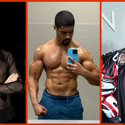






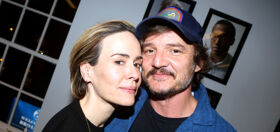
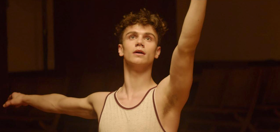

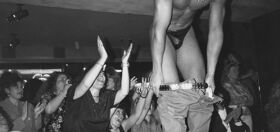


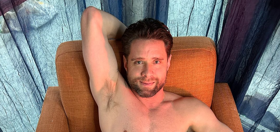
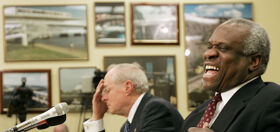


CBRad
All these guys and gal seem really great with what they’re doing.
BCS
Tyler TerMeer!
Participant in AIDS LifeCycle, board member of Advocates for Youth and National Association of People with AIDS.
Was previously the Director of Men’s and Youth Programs for Southwest Center for HIV/AIDS and the Program Manager in Prevention at the National Alliance of State and Territorial AIDS Directors (NASTAD), where he managed NASTAD’S Gay Men’s Portfolio. Recently took over as the Director of the Ohio AIDS Coalition.
Featured this summer in a PSA on LOGO called “I am living my truth” with other positive athletes.
http://www.tylertermeer.com/?page_id=4
WillBFair
I’m so glad we’re finally talking about prevention. And I bless Michael Parish and Brant Miller.
This may be off topic, and I’ve always worked to feed the homeless, but back in the day, I was friends with the guys in SF who started Shanti. I can’t even remeber their names now, but they were much stronger than I was. I was told that Shanti became a model for much that came later.
JayKay
Wanna know how you can help prevent AIDS?
Stop encouraging a culture that accepts and celebrates classless, slutty behavior. How about encouraging people to only have sex with someone while in a committed, monogamous relationship, instead of telling people “oh sure, go ahead and bang 30 anonymous strangers in a dirty bathroom stall in one night! Just make sure you use a condom, because otherwise that’s gross.” It might not be OMGSEXPOSITIVE and a few sluts might get shamed in the process, but it might just save a few lives.
Riker
@JayKay: Sex isn’t something to be afraid of. Sex is natural, it is fun and a great way of relieving stress. Studies have shown that people who have sex regularly are happier and healthier than those who don’t. As long as appropriate precautions and common sense are used, there is nothing to feel guilty about for those who choose to have sex.
Plus, some people just aren’t cut out for monogamous relationships, for a variety of reasons. For example, my job has me working overnights and sleeping during the afternoon/evening. My schedule doesn’t really allow for dating and things like that, but an occasional hookup helps relieve the pressure. Why should I deny myself the pleasures of intercourse just because I can’t have a boyfriend?
jack
Nice article
Mitch
@WillBFair: Why do you continue to perpetuate some myth that we’re “finally talking about prevention”? Its all anyone ever talks about. ADAP waitlists recently peaked at over 10,000 souls who did not have access to antiretrovirals. The vaccine of the month club has consistently taken priority in thirty years of scientific study, despite leading nowhere. Your continued promotion of the myth that we’re “not talking about prevention” when it has taken precedence over virtually every other necessity regarding HIV is completely destructive and selfish. You say you once worked with Shanti, a group which works to improve the lives of people with HIV, but you continually mislead people with an image of pozzies sucking up precious “prevention resources”. With “friends” like you, I can’t imagine needing enemies.
Riker
@jason: No, AIDS is caused by the Human Immunodeficiency Virus. The evidence is conclusive, and has been for many years. AIDS denialism has caused thousands and thousands of deaths, and spouting it at this point ought to be criminal.
Now kindly STFU and go back to sucking off Peter Duesberg
jason
Riker,
There is no AIDS denialism on my part. AIDS does exist. Peter Duesberg believes that AIDS exists.
But AIDS is not caused by a virus. If it was, there would be millions of victims on the model of a flu pandemic.
Blaming a virus was the easy way out for promiscuous gay men who refused to see the error of their promiscuous ways. Gay men sought to tie the consequences of their promiscuity to a virus rather than to their poor choices.
Well, I’ve got news for you. Every choice that a human makes has consequences for his or her life. Don’t deny it – you know it’s true.
Riker
@jason: Nobody is blaming anything on a virus. The overwhelming body of scientific evidence points to HIV as the cause for AIDS. Not a single person has developed AIDS without first being infected with HIV.
The idea that AIDS is caused by clubbing and drugs etc was a valid hypothesis in the early to mid 1980s, when we didn’t know what was causing these wasting illnesses and deaths. However, clinging to this outdated belief on the 21st century flies in the face of science. Any idiot with a high school education who spends a few hours reading the literature on the subject can understand the clear obvious link.
Go away and rant some more about the bisexual double standard. You’re wring and pigheaded there too, but at least that particular lie hasn’t killed anybody yet.
Krishna Stone
Hello:
Thank you for including our colleague, Jaszi Alejandro, in this article. He is truly remarkable!
Krishna Stone
Communications Department
Gay Men’s Health Crisis (GMHC)
rayy
Thank you. This is a real “A-list” and I’m sure there are many others out there who are living fulfilling lives and making a contribution.